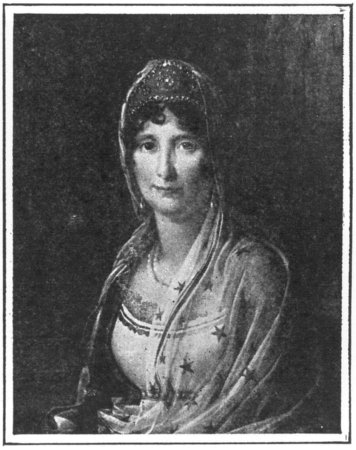Transcriber’s Note
Cover created by Transcriber and placed in the Public Domain.
THE MENTOR
SERIAL NUMBER 38

NAPOLEON BONAPARTE
BY
IDA M. TARBELL
Author of “Short Life of NapoleonBonaparte,” “He Knew Lincoln,” etc.
EMPEROR NAPOLEON · BRIDGE AT ARCOLE · FRIEDLAND—1807 ·RETREAT FROM MOSCOW · ABOARD THE BELLEROPHON · ST. HELENA
Nobody who has lived in modern times has so stirred up the worldas Napoleon Bonaparte. Nobody has upset so many old things, andstarted so many new ones. No man ever lived who had more faithin his own powers—and less respect for those of other men. Napoleonhad, too, an unusual combination of those personal qualities which exciteand interest men. It is nearly a hundred years since he dropped out ofactive life; but his story is more rather than less thrilling as time goes on.
There was nothing in his birth or schooling or his first activities in lifeto lead one to expect an unusual career. His family was poor and servile;his father trading on his name and his acquaintances to feed, educate, andplace his family. The most promising thing about young Bonaparte washis resentment of this servility and his own flat refusal to participate init to help himself. Throughout his boyhood in the island of Corsica,where he was born in 1769, during the six years he spent at school inFrance and the eight years of intermittent military service that followedhis first appointment at the age of sixteen to a second lieutenancy, helived a tempestuous inner life. Ambition for himself, devotion to his family,love for Corsica, hatred of France, sympathy for the new ideas ofhuman rights that were stirring Europe,—these sentiments kept the mindand heart of the young officer in tumult and made him waver betweenallegiance to the land in which he was born and the land that had trainedhim; between the career of a soldier that was his passion and a career ofmoney making, in order to educate his brothers, settle his sisters, and puthis mother into a secure position.
NAPOLEON THE OPPORTUNIST
It is quite fair, I think, to characterizehis early career as that of an adventurer.He was watching for a chance, and haddetermined to take it, regardless of whereit offered itself. It was at a moment whenhe was in disgrace for having refused theorders of his superiors in the army that thechance he wanted came.

LÆTITIA BONAPARTE
The Mother of Napoleon.
The convention in which at that momentthe French government centered wasattacked by the revolting Parisians. Bonapartehad no particular sympathy with theconvention,—in fact, he had more with therebels,—but when one of his friends in thegovernment who knew his ability as anartillery officer asked him to take charge ofthe force protecting the Tuil